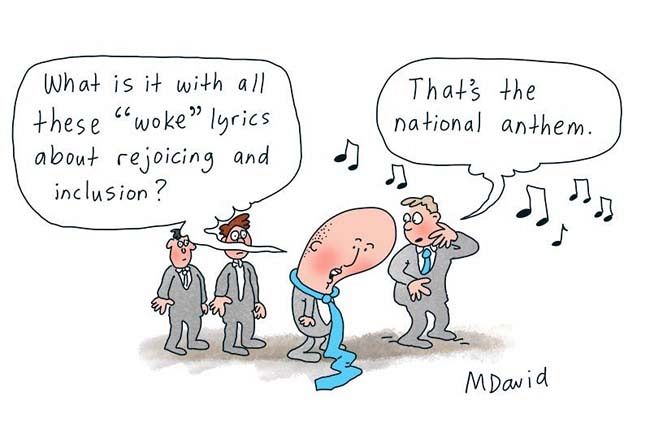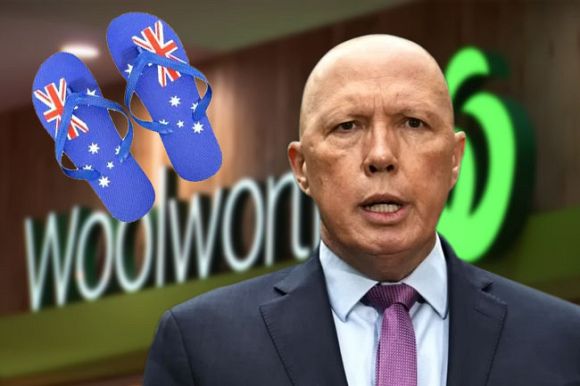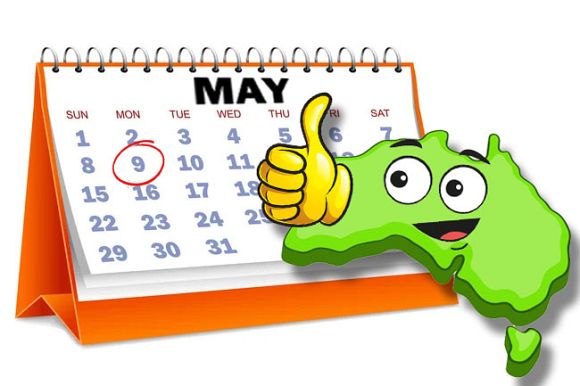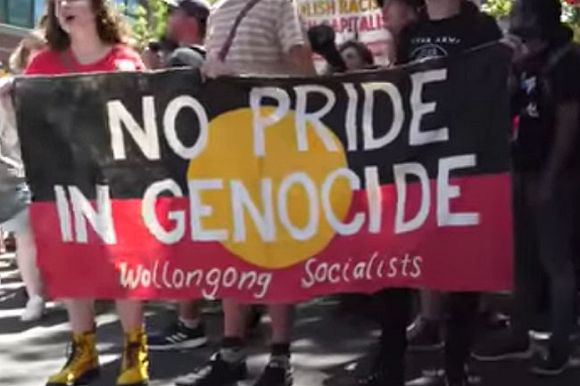Australia Day 2024 sees a nation more divided than ever as the Opposition continues to fan the flames of racism, writes Dr Tim Dunlop.
TANYA AND I lived in London from 1991-1995. It was great and it was also the first time I had ever been outside Australia. I discovered there is nothing like seeing your country from afar to clarify your relationship with your place of birth. I don’t have a patriotic bone in my body, but I love my home country and let me explain the distinction I’m trying to make.
A defining moment was watching BBC TV coverage of Charles and Diana touring Australia, rudely arranged in our absence, where then Prince Charles was opening the new wing of a hospital in Brisbane. The BBC reporter was vox-popping the crowd and spoke to one of the nurses as the royal entourage arrived. The reporter asked something about what the nurse thought of the proceedings and the extension to the hospital. “It’s great,” she said. “We call it the Camilla Wing. It’s a bit on the side.”
Her good-natured delivery, her accent, the joke itself and its blunt, deflating-and-hilarious cheekiness summarised something I had been missing about home in a way that I will never forget. We kid ourselves sometimes about the depth of our larrikin nature, but there it was and it made me homesick.
Growing up in Canberra in the 1970s, attending a Catholic boys’ school – aware of politics in a way that wasn’t typical for most Australians – we had photos of the Queen on the classroom walls, along with one of the Pope and your hair had to be above the top of your collar.
We sang ‘God Save the Queen’ at special events, along with ‘Advance Australia Fair’ and we raised the flag in the playground every Monday morning. We cheered all national sporting teams and took genuine pride in Australian achievements great and small, even those that rightly belonged to New Zealand. Especially those ones.
My point is, there was nothing remotely “woke” about the environment I lived in or the education I received and national pride was openly cultivated. But there was also something modest about how our parents and teachers approached such matters and the idea that we would engage in the sort of overt, showy flag-waving we associated with Americans was horrifying to us.
Even the pomp, ceremony and pretension of various royal events ground our egalitarian gears and we thought – we knew – that being Australian meant not needing to engage in all that nonsense. The essence of the patriotism we felt was exactly that — that we didn’t do cringey public exhibitions of allegiance, while it was the holiday bit of having a national day off that said everything that mattered about our national identity.
Our unofficial anthem was ‘Friday On My Mind’ by The Easybeats, that working-class ode to the end of the working week.
When President Jimmy Carter addressed Prime Minister Malcolm Fraser as “John” during an official U.S. visit, we weren’t offended. We laughed at Fraser’s embarrassment, scoffed at the ignorance of the yanks and shrugged about what it meant for our standing in international affairs.
At school, we had heated and sensible arguments about the place of Anzac Day in the national calendar, studied The One Day of the Year in English class, cheered or booed the brave women who protested rape in war at the Anzac Day march each year, and hugged our fathers and grandfathers who had fought at Gallipoli and in subsequent wars.
One year, the director of the Australian War Memorial gave our school, or our class (I can’t remember which), a talk about how he thought Anzac Day would fade as a national event once the last participating soldier had died. He thought that was probably a good thing.
Later, we lived in the U.S. and our son went to the local public elementary school, beginning in kindergarten. “How’s school going?” I asked him one afternoon not long after we arrived and he said it was fine. “Except for that stupid poem we have to say every morning.” He meant the Pledge of Allegiance.
“They know you’re Australian,” I told him. “If you just stand politely, you don’t have to say it.”
“Oh, we have to say it,” he assured me.
The experience of living in the U.S. and the UK convinced me there was something unique about Australian multiculturalism and the way an unassuming patriotism could make room for diversity. My mother’s stories – as the child of an Italian immigrant – of being abused and mocked at school had taught us the country had a shocking history in this regard (we weren’t kidding ourselves). But Fraser’s embrace of Vietnamese refugees and Keating’s realigning of national sensibility with geographic location was part of a process that suggested the arc of national identity might bend towards something more open and realistic.
We fumbled around with attempts at reconciliation, sorry days and other acknowledgements of the harm done by the British invasion, and never got it right. But being able to acknowledge your country’s failings seemed like the essence of any meaningful notion of patriotism and after my experiences of living in both countries, I thought we were closer to getting it right than either the U.S. or the UK.
It all began to come undone as the economic reforms of the 1980s ate away at not just the relative material equality many Australians had taken for granted but at the underlying values of fairness that nurtured that economic settlement. The deregulation of shopping hours, the financialisation of housing, the casualisation of work and the need for extra sources of income that engendered a hustle culture of “work, work, and more work” soured the sentiment of ‘Friday On My Mind’ and fundamentally changed our approach to nationalism.
To paraphrase Les Murray, a country must have legends or it will die of strangeness and so – as our functioning, organic and modest brand of patriotism was undermined by the changing economic landscape – politicians had to produce a substitute.
Enter John Howard in 1996, just after we arrived home from London, and enter his confected, weaponised reinvention of Anzac Day and Australia Day and debates about the flag and the republic and anything else he could pour patriotic treacle over. His version of nationalism had to be louder and brasher and pushier – and unforgiving of dissent – because it was nine-parts fake, the imposition of a tradition we had previously rejected. He had to prescribe social solidarity as his own economic policies were undermining it.
And what has it got us, this fully loaded enactment of patriotism jammed down our throats by successive governments?
January 26 stands as an open insult to the First Nation’s population and we are a country more divided than ever, one that has tried at the highest levels of government to reinscribe the racism on which the nation was founded rather than to find a way past it. This year it has come to a head with Opposition Leader Peter Dutton whining about a supermarket not stocking plastic shit we can wear and wave, a telling symbol of how Howard and co diminished the whole idea of patriotism and drained national pride of meaning, of pride.
The defining patriotic message I grew up with was that you could love your country without being a self-aggrandising dickhead and what I wouldn’t give to get that sensibility back.
This article was originally published on the Future of Everything under the title 'Australians all'.
Dr Tim Dunlop is a leading author and professional speaker specialising in media, technology and the future of work. You can read more from Tim here and follow him on Twitter @timdunlop.
Related Articles
- As supermarket woke war escalates, no solace found in Captain Cook's feet
- Say 'okay' to Australia Day in May
- Australia Day is a symbol of oppression to First Nations peoples
- Invasion Day debate: #ChangeTheDate — but not right now: FLASHBACK 2017
- Australia Day: Flag 'freed', date still in chains
Support independent journalism Subscribe to IA.















